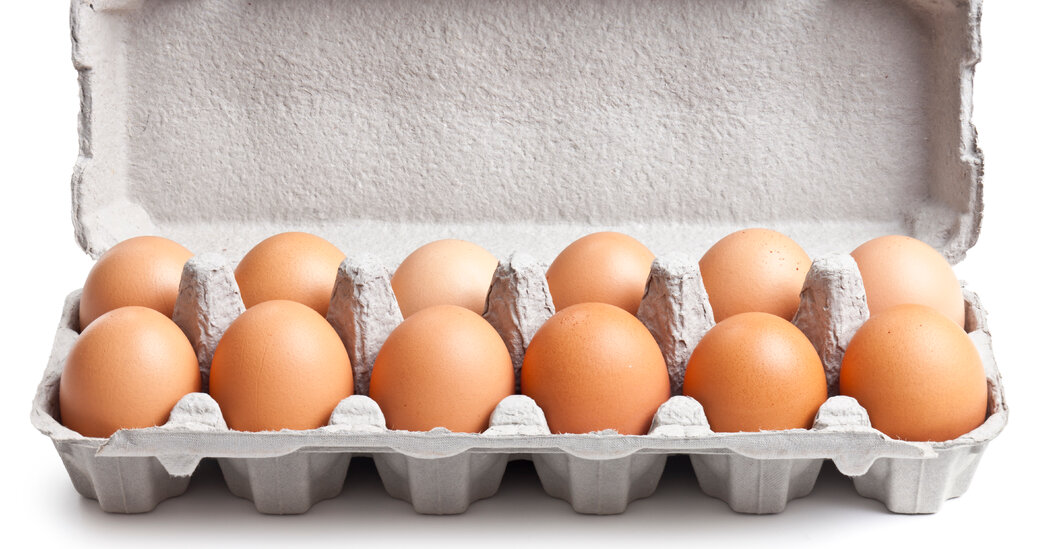That carton of eggs has been sitting in the fridge for a while. You check the expiration date, and you’re a few days past. Are they still OK to eat? It’s the stuff of common domestic disagreements, frantic internet searches and self-doubt. How long do eggs really last, anyway?
According to the United States Department of Agriculture, it’s longer than you think.
Expiration dates are often just recommendations and for some ingredients (say, animal proteins like beef, chicken and pork), it’s best to consume them on the sooner side. But eggs give you some grace. In the shell, they can last three to five weeks from the day they come home, and that may even outlast the date on the carton.
Here’s even more on best practices for eggs:
How should I store my eggs?
Put them in the fridge as soon as you get home. Make sure that your fridge temperature is set to 40 degrees Fahrenheit or colder, and that you don’t keep your eggs in the door, which tends to be warmer than the shelves. Don’t keep eggs at room temperature for more than two hours.
Why are eggs stored in the fridge in the United States?
In parts of Europe and elsewhere, eggs are often left on the kitchen counter. That has to do with the natural exterior coating kept on the eggs, which protects them from microbes, but also can harbor salmonella. That’s why egg producers in the U.S. have washed and refrigerated their eggs since the 1970s. Doing so removes that protective cuticle that helps keep any dangerous bacteria out — and means that eggs should be refrigerated to keep them safe. This also isn’t necessarily just an American habit: Eggs also get a rinse in Canada, Japan, Australia and Scandinavia.
How do I store raw eggs?
As mentioned before, raw eggs (or simply eggs in the shell without any cracks) should be refrigerated in the carton as soon as you get home. Once there, they should be kept in the original carton to avoid absorbing any smells through their porous shells.
And what about raw egg whites?
You can refrigerate raw egg whites in an airtight container for up to four days, as recommended by the American Egg Board. In the freezer, they last up to a year, according to the U.S.D.A. My colleague Melissa Clark smartly suggests freezing individual yolks and whites in ice cube trays, then popping them out and storing them in a freezer-safe plastic bag with as much air let out as possible for long-lasting results.
And raw egg yolks?
Raw egg yolks will last in the refrigerator for up to two days, but they can last a lot longer in the freezer with some care. Because they can get clumpy and gelatinous when frozen as is, you’ll want to beat them first, adding a little bit of salt and sugar, and then freeze them. (The U.S.D.A. recommends a pinch of salt and 1 ½ teaspoons sugar for every four eggs.)
How long can I store hard-boiled eggs?
Refrigerated in their shells, hard-boiled eggs last up to a week, but once they’re out of their shells, you want to get to them much faster: within a day, the American Egg Board recommends. As for freezing, it’s a dicey proposition. It affects the texture, so the board suggests avoiding it altogether unless you like your egg whites tough and watery.
How can I tell if an egg is old?
You may have heard the age-old trick. Put your eggs in water. If it floats, it’s fresh. If it sinks, it’s not. (The pack date is most likely a more reliable indicator.) That said, old eggs aren’t necessarily bad. They can be used to great effect in baking, where their diminished quality — think thinner whites and flatter yolks — makes less of a difference. But let common sense be your guide: If it smells rotten or looks funny (a watery white, a discolored yolk, a powdery or slimy shell), throw it out. The same goes for any cracked eggs. There’s no sense in letting a bad egg spoil your week.
Follow New York Times Cooking on Instagram, Facebook, YouTube, TikTok and Pinterest. Get regular updates from New York Times Cooking, with recipe suggestions, cooking tips and shopping advice.







